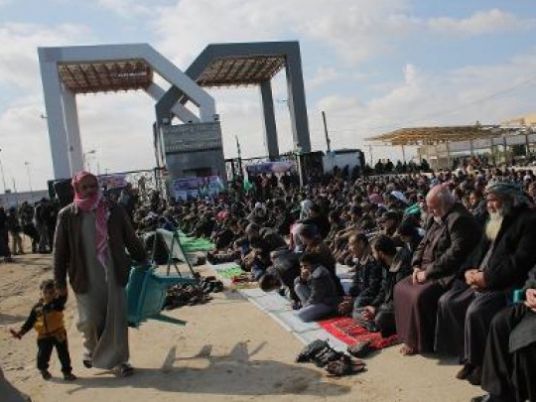JERUSALEM – Israel and Egypt said on Monday they have struck a deal to swap 25 Egyptians in Israeli custody for a US-Israeli dual national accused by Cairo of espionage, in a step seen as easing strains between the strategic neighbors.
The US-brokered deal was reached shortly after a successful Egyptian-brokered swap between Israel and Hamas Islamists that freed captive soldier Gilad Shalit in exchange for more than 1000 Palestinian prisoners.
A statement from Prime Minister Benjamin Netanyahu's office said Israel's security cabinet would meet on Tuesday to discuss the deal to swap Ilan Grapel, 27, for the 25 Egyptians, including three minors who have not been charged with security-related offences.
Once the cabinet gives its approval, the swap is expected to take place on Thursday, an Israeli official in Jerusalem and an Egyptian intelligence source in Cairo told Reuters.
"In the framework of efforts by Israel and Egypt and with the help of the United States, Egypt has agreed to release Ilan Grapel. By Egyptian request Israel has agreed to free 25 Egyptian prisoners," read the statement from Netanyahu's office.
Grapel was arrested in Egypt and accused of being a spy out to recruit agents and monitor events in the popular revolt that overthrew President Hosni Mubarak in February, an ally of both the United States and Israel.
Before the exchange deal was announced, Israeli Foreign Minister Avigdor Lieberman denied on Monday that Grapel had been involved in any espionage.
Grapel emigrated to Israel in 2005 from New York and served in its military in a 2006 war with Hezbollah guerrillas in Lebanon.
His mother said at the time of his arrest that her son, a law student in the United States, was working for Saint Andrew's Refugee Services, a non-governmental organization, in Cairo.
Grapel's father, Daniel Grapel, said he did not know when his son would be freed. "I think it should take place soon. But the time and hour I will know only once it has happened," he told Israel's Channel 2 television.
US Defense Secretary Leon Panetta had called on Egypt while on a visit to the region this month to release Grapel, though he denied then any involvement in the efforts to free him.
The prisoner deal was seen as improving ties between Israel and Egypt, which suffered their worse strains since the toppling of Mubarak when five Egyptian security personnel were killed in an incident along the Israeli border in August.
Their deaths occurred during a cross-border shooting at a time when eight Israelis were killed in an ambush by gunmen along an adjacent desert road at the Sinai frontier.
Relations soured further when protesters stormed the Israeli Embassy in Cairo in September in anger at the Sinai shootings, forcing Israel to evacuate security guards from the building.
In his remarks at a briefing with Israeli reporters, Lieberman said Israel was "in touch with the Egyptian authorities and trying to reach an arrangement to reopen and return all diplomatic staff to the embassy," but he did not know when that may happen.
Israel met Egypt's demands and apologized for the shootings earlier this month, citing a joint investigation which showed Egyptian police had died "as a result of gunfire by our [Israeli] forces."
Egypt was the first of two Arab countries to sign a peace agreement with Israel, in a deal concluded in 1979. The US-brokered treaty was long a mainstay of US policy in the region, with both countries topping Washington's list of foreign aid recipients.
Jordan signed a treaty with the Jewish state in 1994.




